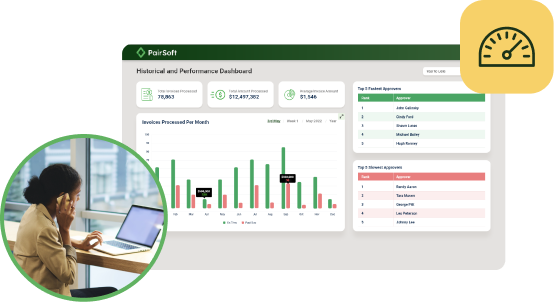
Wadih Pazos
Wadih founded both PairSoft and PaperSave. He is an avid technologist who specializes in streamlining operations and maximizing productivity.
View all posts by Wadih PazosWadih Pazos

Virtually all of the trends to have surfaced in enterprise IT in the past few years have in some way fueled even more progressive business process capabilities, and this includes cloud computing, mobility, the Internet of Things, analytics, and automation software. Now, it appears as though global organizations are set to pour even more investments into the technologies that can completely modernize their operational frameworks and boost financial performances in the process.
International Data Corporation recently reported that global investments into digital transformation-related solutions are set to see a compound annual growth rate of 16.8 percent between 2014 and 2019. At the end of that study period, the analysts expect annual spending to reach roughly $2.1 billion. At the same time, a large portion of this will be derived from the United States, which is forecast to invest $732 million of that total figure annually by 2019.
As a note, IDC uses “3rd Platform” as a blanket term to describe some of the more modern and futuristic technology trends on the market, including big data, the Internet of Things, and cloud computing. Additionally, the researchers broke down spending to evaluate how each industry will be approaching these technologies and found that manufacturing will likely begin with the biggest share of overall investments. Still, retail will experience the quickest increases from 2014 to 2019.“Digital transformation is not just a technology trend, it is at the center of business strategies across all industry segments and markets,” said Robert Parker, Group Vice President at IDC. “Enabled by the 3rd Platform, digital transformation represents a critical opportunity for companies to redefine their customers’ experience, achieve new levels of enterprise productivity, and create competitive advantage. Enterprise investments in digital transformation will constitute the majority of growth in technology markets over the next five years, making it a priority for technology vendors as well.”
When business leaders are quick to the punch with digital transformation, they will likely enjoy lower overhead and higher productivity than their competitors that have not yet embraced modern technologies. At the same time, because these implementations will have such a profound impact on operations, diligent and intelligent decision-making from the initial planning and investment stages through long-term optimization are paramount.
If a company is not entirely comfortable with its ability to navigate these somewhat complex matters, the use of a reliable managed service provider is recommended to keep the projects on track and lower risks associated with process and technology overhauls.


Many organizations start with manual receipt handling, fragmented card feeds and slow AP processes. Implement AI agents to auto-capture receipts, route approvals, enable punch-out buys and post to the ERP.
Result: faster batching, fewer errors and cost savings. “This saves us hours every month.”
Many organizations face slow, paper-heavy AP and fragmented procurement that waste time and inflate costs. AI Agents can automate approvals, PO matching and record sync to improve speed, accuracy and control. Client quote: “It freed up hours and made our process reliable.”
Operational drag and rising costs slow growth: teams waste time on manual tasks, misaligned priorities and opaque processes. AI Agents help automate routine work and coordinate actions across teams. “We’ve lost time to repeats and handoffs,” says a typical client.
Companies struggle with manual procurement, fragmented approvals, and costly integrations that slow growth and obscure spend. Our AI Agents streamline requisitions, POs, and invoice matching to cut manual work and improve visibility. “We were wasting time and missing insights,” says a client.

Many teams start with fragmented PO/AP systems, manual matching and delayed financial reporting. Deploying AI agents to automate PO checks, real-time encumbrance tracking and invoice matching reduces processing time and errors, delivering live budgets and faster closes. “Finally, we can see current balances and approve instantly.”
Many companies juggle growing invoice volumes and legacy systems. They struggle with manual processes, compliance gaps and limited headcount. Our AI Agents automate integrations, enforce rules and surface exceptions. The typical outcome: faster closes and measurable ROI. “We stopped chasing invoices.”